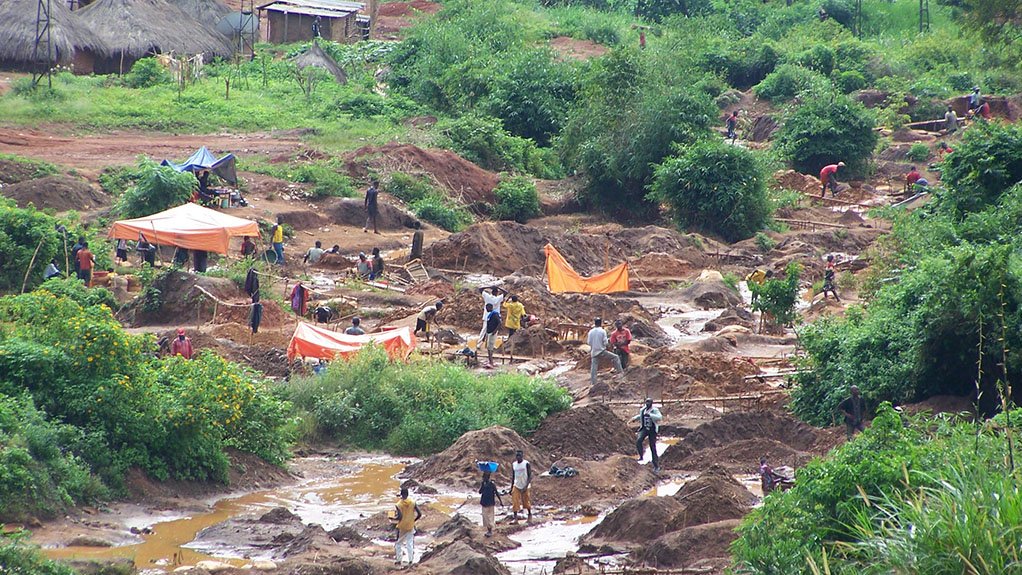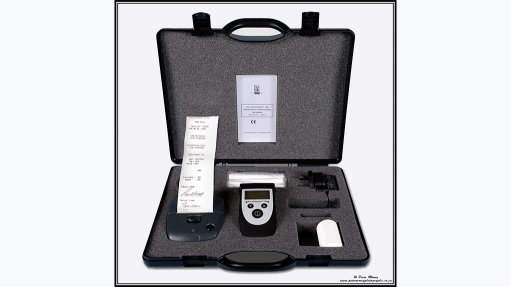DRC investment to be buoyed by elevated copper price



COPPER CAMPOUT An artisanal miner encampment which is a prolific occurrence in the Democratic Republic of the Congo
DORCAS NHLAPO The current state of copper mining in the DRC continues to place it as the leading copper producer in Africa, with sizable global mining corporations operating in the country
A forecasted increase in global copper prices will encourage continued investment in the “copper and cobalt mining powerhouse of Africa” – the Democratic Republic of the Congo (DRC) – reports business advisory firm BDO South Africa senior audit manager Dorcas Nhlapo.
She attributes this elevated investment scenario towards statistics released by insights, data and analytics provider Fitch Solutions, which reports that copper production in the DRC grew by 13.5% in 2023 as a result of increased mining activity – up from the 9.2% leap in 2022.
Nhlapo adds the current state of copper mining in the DRC continues to place it as the leading copper producer in Africa, with sizable global mining corporations operating in the country.
“The DRC ranks fourth out of 16 sub-Saharan African markets as one of the most untapped and lucrative copper mining locations, and boasts the eighth largest reserves of copper globally,” she points out.
Why the Piqued Interest
“As the global energy landscape undergoes a transformative shift towards sustainability, copper is emerging as a linchpin in the transition from hydrocarbon- based production systems to diverse and ecofriendly alternatives,” says Nhlapo.
She explains that in the era of evolving energy dynamics, the significance of copper as a cost- effective and efficient conductive material used in capturing, storing and transporting new sources of energy, is more pronounced than ever. “This is reflected in current trends and predictions for the metal.”
A recently released report, from multinational professional services network PwC, the ‘Global Mine Report 2023’ sheds light on the pivotal role copper plays in the mining industry.
According to the report, 66% of deals in the mining sector during 2022 were centred around critical minerals, with copper dominating at 85% of these.
This, together with a global capital market estimated at $453.76-million and a projected growth rate of 5.1% by 2030, means the copper market is positioned for substantial expansion going forward.
The driving forces behind this surge in demand are diverse, encompassing industries such as construction, electrical and electronics, automotive, and consumer goods, Nhlapo highlights.
The trajectory of global copper mine production further supports this trend, with an anticipated average yearly growth rate of 3.2% from 2023 to 2032, and yearly output rising from 22.6-million tonnes in 2023 to 29.2-million tonnes by 2032.
Africa’s Copper Contribution
Nhlapo says that as the demand for copper intensifies globally, Africa finds itself at a crossroads.
“Despite being home to key copper producers such as Zambia and South Africa, the continent remains on the periphery of the global copper supply and demand chain, with four of the five leading companies in the copper market based outside of Africa,” she points out.
In South Africa, investment in mining exploration has lagged since 2003, leading to a decline in output.
In the case of one reputed African mining company, this decline was reflected in an overall drop in ore grades, significantly impacting output in 2022.
Meanwhile, for Zambia, government intervention has hampered copper production; however, Nhlapo suggests there are hopes for a rebound in the medium term as agreements are reached and funding is secured.
She says that it is crucial for Africa to position itself as a key player in the copper industry, particularly in the context of the growing green energy initiative.
Known predominantly as a “long-cycle commodity”, she says copper typically takes up to three years to develop as a brownfield project, or up to eight years to establish as a greenfield project.
As such, long-term planning and investment are imperative to counteract losses from aging mines and ensure a sustainable future for mining in Africa, states Nhlapo.
She stresses that challenges such as political instability, regulatory uncertainties and infrastructure limitations, need to be addressed not only in the DRC, but in other African nations, to improve the continent’s ability to handle the copper supply and demand chain.
“To mitigate these challenges, a comprehensive and collaborative approach involving the government, industry stakeholders and international organisations is essential,” says Nhlapo.
Strategies such as strengthening governance structures and regulatory frameworks to ensure transparency and accountability would “greatly assist” the sector in mitigating these challenges, she adds.
Further strategies might include promoting political stability and rule of law to create a conducive environment for the mining sector, as well as investing in infrastructure development to improve logistics and reduce operational costs.
“Engaging with local communities through community development programmes and ensuring their participation in decision-making processes and implementing and enforcing sound environmental, social and governance (ESG) practices, is paramount,” adds Nhlapo.
Importantly, the current and future trends of copper underscore its critical role in the evolving global energy landscape, she notes.
As nations grapple with ESG considerations, supply chain challenges, and environmental impact, strategic planning and collaboration are essential to ensure a responsible and sustainable future for the copper industry, Nhlapo avers.
“Africa, in particular, stands at a pivotal moment, with the opportunity to assert its role as a significant player in the copper market of tomorrow,” she concludes.
Article Enquiry
Email Article
Save Article
Feedback
To advertise email advertising@creamermedia.co.za or click here
Press Office
Announcements
What's On
Subscribe to improve your user experience...
Option 1 (equivalent of R125 a month):
Receive a weekly copy of Creamer Media's Engineering News & Mining Weekly magazine
(print copy for those in South Africa and e-magazine for those outside of South Africa)
Receive daily email newsletters
Access to full search results
Access archive of magazine back copies
Access to Projects in Progress
Access to ONE Research Report of your choice in PDF format
Option 2 (equivalent of R375 a month):
All benefits from Option 1
PLUS
Access to Creamer Media's Research Channel Africa for ALL Research Reports, in PDF format, on various industrial and mining sectors
including Electricity; Water; Energy Transition; Hydrogen; Roads, Rail and Ports; Coal; Gold; Platinum; Battery Metals; etc.
Already a subscriber?
Forgotten your password?
Receive weekly copy of Creamer Media's Engineering News & Mining Weekly magazine (print copy for those in South Africa and e-magazine for those outside of South Africa)
➕
Recieve daily email newsletters
➕
Access to full search results
➕
Access archive of magazine back copies
➕
Access to Projects in Progress
➕
Access to ONE Research Report of your choice in PDF format
RESEARCH CHANNEL AFRICA
R4500 (equivalent of R375 a month)
SUBSCRIBEAll benefits from Option 1
➕
Access to Creamer Media's Research Channel Africa for ALL Research Reports on various industrial and mining sectors, in PDF format, including on:
Electricity
➕
Water
➕
Energy Transition
➕
Hydrogen
➕
Roads, Rail and Ports
➕
Coal
➕
Gold
➕
Platinum
➕
Battery Metals
➕
etc.
Receive all benefits from Option 1 or Option 2 delivered to numerous people at your company
➕
Multiple User names and Passwords for simultaneous log-ins
➕
Intranet integration access to all in your organisation
















